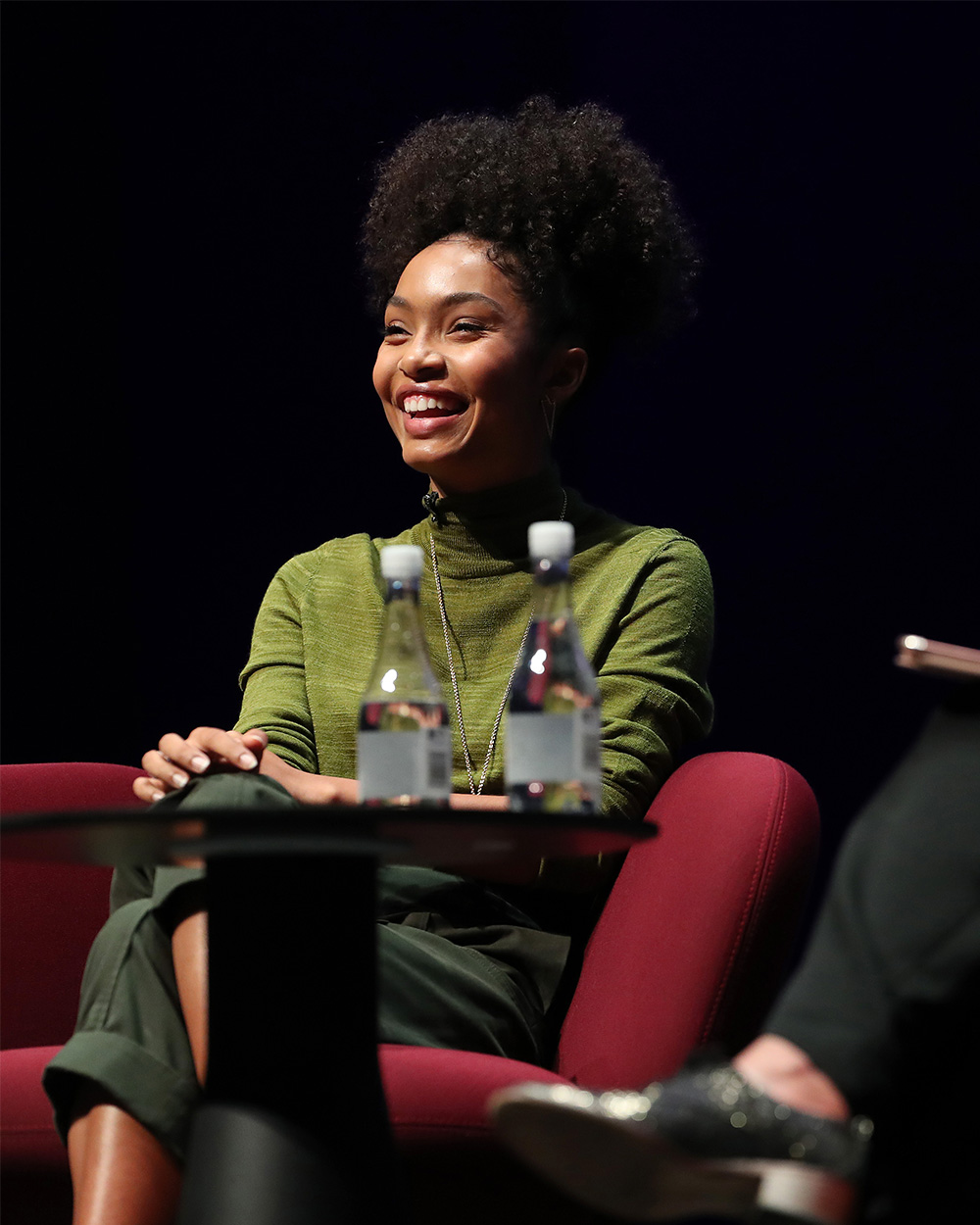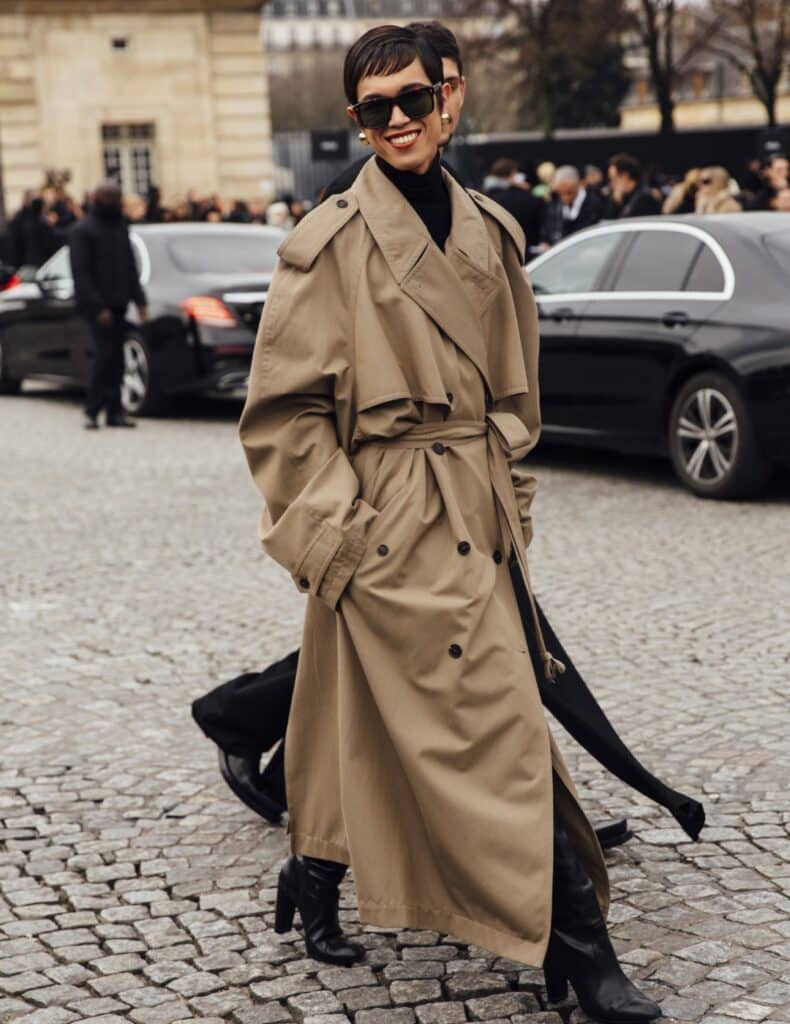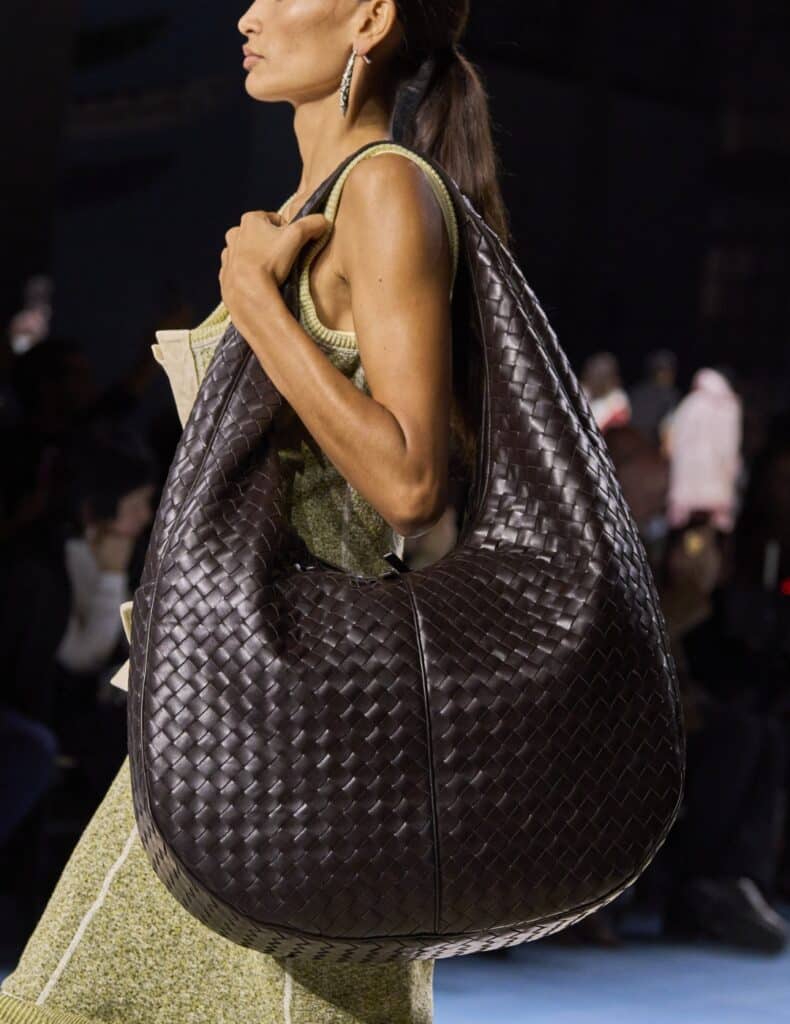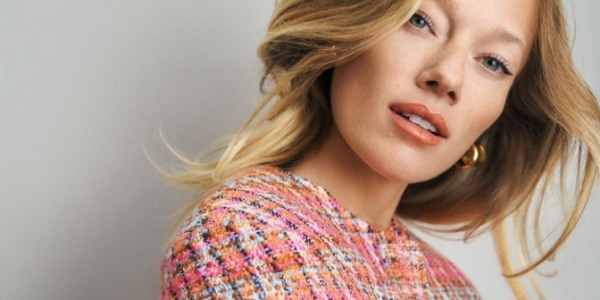
The Gen Z star of Black-ish and Grown-ish has been called the voice of a generation – we share the most memorable soundbites from her recent trip to Auckland.
Poised not just for stardom but a career of change-making, Yara Shahidi has shared the stage at various events with the likes of Michelle Obama, Hillary Clinton, and now Jacinda Ardern, to impart her empowering message. Addressing each crowd with an urgency that underlines her mission to share inclusive stories and bring people closer together, she barely misses a beat as she traverses topics of representation, activism and acting.
WATCH: Yara Shahidi speaking in Auckland at the Power of Inclusion Summit
Recently in Auckland, she helped open the two-day Power of Inclusion summit by saying: “The power of inclusion is the essentialness of inclusion. Inclusion is no longer something that you can hang on to or do on the side or something you should be high-fived for. It’s something that we genuinely want to achieve as a mission statement, especially with what’s happening in our global community right now, especially understanding there are so many times we are separated by borders that did not exist decades ago. We’re separated by nationalities that did not exist decades ago.”
Read on for her most memorable moments below:
1. Making space for everyone
Name-checking her obsession with Holden Caulfield in JD Salinger’s classic teen novel The Catcher in the Rye, Yara, who identifies as proudly black and proudly Iranian, spoke of how it feels to find yourself in a culture that was not made for you.
“What I realised was, it wasn’t necessarily a revolutionary thought, but it was definitely a clarifying thought, was that I have such a familiarity with mainstream culture that I could see myself in a world in which no space was made for me. And I think that speaks to the existence of so many people living at intersections in that we’ve been taught to see ourselves and relate to a culture that did not consider us in making things…
“And so what I was thinking about, is the role of the media is really to be able to bring the same familiarity to everyone living in these intersections, regardless of religion or gender presentation or sexuality or migration status or any different abilities.”
2. Our differences unite us
Yara spoke throughout the summit on how she benefitted from her parent’s intentionally progressive upbringing. As a self-titled nerd and socially engaged human, she sees the importance of re-examining history and of creating a new shared perspective of the world.
“I’ve always wanted to rewrite how we learn history because knowing the education that I got from my parents, I realised that it affected who I felt I related to because I said, of course we are of one another. We may not be the same, but I revel in the differences that we have. And when you are taught to value this Eurocentric point of view, of course there’s going to be a deep sense of othering. Of course we’re not going to understand how you are tied to the person next to you regardless of their identity.”
“I like to say ‘because of’ versus ‘in spite’ of our culture – We say: ‘We accomplish X in spite of our differences’ – And that is really dangerous terminology in and of itself because it still harkens back to this idea of that our differences are what keep us apart. It’s that we had to overcome our identity to be in community with one another, which is faulty, rather than because we are different, because we inevitably have different experiences, we were able to do something beautiful – and that is crucial.”
3. Remember where we have come from
Yara attributes her strong sense of globalism, and appreciation for her fellow man and woman, to all the work that has been done before her. A tattoo that marks ’63’ on her arm is there to remind her of 1963, a crucial year in the civil rights movement – when, among many other things, Martin Luther King said, “I have a dream”.
“Sometimes we turn back history to point to why we deal with certain traumas,” says Yara. “But very rarely do we turn to history to applaud ourselves, to think about the generations of people who had to commit to something greater than themselves, acknowledging that they were working towards a future they were not guaranteed. They were working towards a future that they may not have had any part in but they were deeply understanding of how crucial it was for them to still do that work and that’s the same commitment that we must make to each other, to generations yet to come, that we must do this work not because we want to reap the benefits but because we know it will be essential.”
4. Finding joy
A key point that Yara brought up during the summit was the importance of letting all humans exist on-screen in their joy, so we can see the full experience of marginalised communities.
“I feel like the couple of times when you do see people of colour [on TV and film], it’s very easy to see us in the narratives that you are used to. I think it is easier to green-light a slave narrative.
“Mind you, these are all stories that do need to be told, but I think it becomes evident when that is the story that there’s something missing. And so when I think about having two younger brothers, I’m thinking well what medium represents them right now, what could they see themselves in? And quite honestly, it is the brilliant work of When They See Us. But it’s like, well what could they turn to that isn’t talking about when they are being harassed, or we are being beaten or killed?
“I think so many times, our narratives are one way or another attached to these traumas. And so the one thing we aren’t granted is the space to just exist. And it’s not to erase the importance of these conversations. It’s not to belittle what we’ve had to go through as a people or as a community. But I think it’s also making sure we take time to acknowledge that we exist as full humans. We don’t only exist with our trauma.”
5. The cancel culture conundrum
When asked by an audience member for her thoughts on cancel culture – when certain people make a miss-step, of varying degrees, and are cast out of the social sphere, especially on social media – Yara called for a more balanced perspective to right the wrongs.
“It’s fascinating because it starts a conversation around not giving people space to grow,” she says of the movement. “Now given, I do think there are certain mistakes that people make that they should be held accountable. You shouldn’t be able to just blow on through but at the same time, with cancel culture, the one thing that we haven’t also discussed is, what’s our metric for success? What’s our metric for genuinely believing you’ve wronged as a human? So we’ve figured out how to cancel a person and get them out of the equation. But we haven’t actually had the conversation of, what do we expect from them to know they’ve grown?…
“Of course there should be a system of accountability but there should be a system of re-educating. There should be a system of figuring out, how do we determine how much you have genuinely grown as a human? What are we expecting of you? Basically, I think, it should be part of a constructive conversation.”
6. What we can do
Fashion Quarterly spoke exclusively with Yara backstage during the summit. We asked her, what’s the one thing we can all try and do to make the world a better place?’
“I’m dedicated to educating myself every day in ways that are new or surprising,” she replied. “I’m always listening to podcasts, always talking to my friends, because ultimately we do all have different skills and passions and gifts. And so I think it’s not so much tasking everyone with the same thing as giving yourself access to information that will inspire what your next action step is.”










